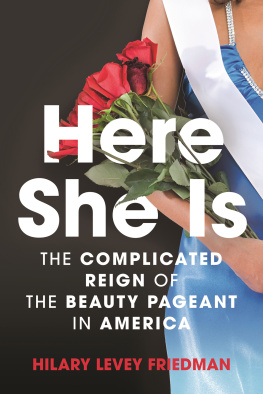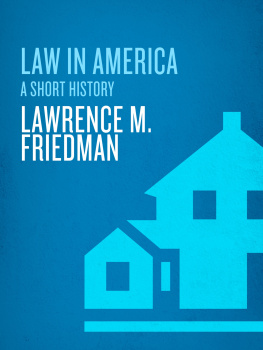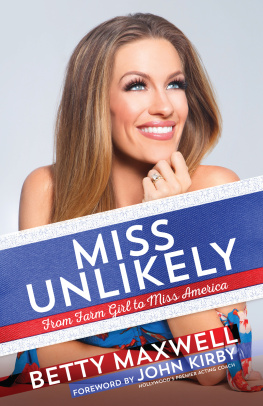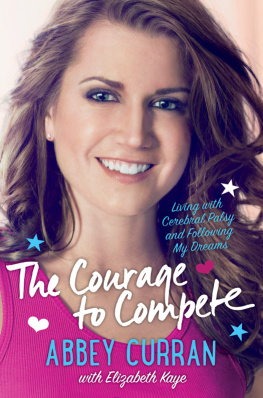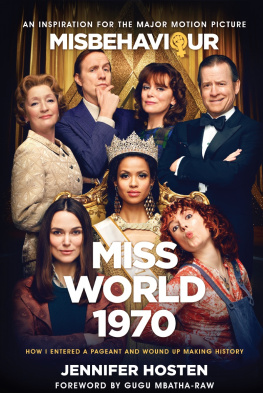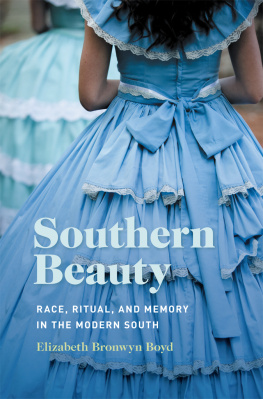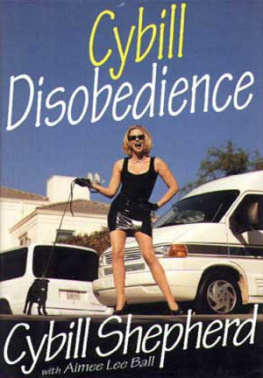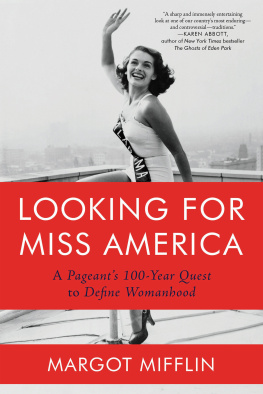Table of Contents
Pagebreaks of the print version
Guide

For Pamela Anne Eldred, Miss America 1970but just Mom to mewithout whom none of any of this would have been possible.

PREFACE
Beauty and Brains
I CAN T REMEMBER EVER NOT knowing what a beauty pageant was.
In my childhood home I saw crowns on bookshelves instead of books.
I innately understood that you earned a crown by winning a beauty pageant.
To win a pageant you had to be beautiful and thin. You also had to be a good public speaker and a good performer, which in my mind meant singing or dancing.
Oh, and never go to the grocery store without a full face of makeup on or your hair perfectly coiffed.
In other words, you should look and be like my mother, Miss America 1970, Pamela Eldred.
I am the only child of a divorced former beauty queen. My parents split when I was three, so from a very young age I spent weekends at fashion shows, dance competitions, modeling classes, and, yes, beauty pageants.
But I was never the one onstage. Mom was in the spotlight and I was in the shadows. I sat in the audience or backstage, reading a book as I observed all the onstage and offstage shenanigans while Mom worked as a judge, emcee, or instructor.
One weekend, when I was about nine, we went to a child beauty pageant. Kid pageants were not Moms usual side hustle (she was a cosmetologist who did facials and electrolysis during the week, and she wrote a fashion and beauty column for a local newspaper), but she was asked to judge, and a check was a check. Mom did not like child pageants, thinking the girls were too young to compete based on how they looked, but I was fascinated. Here were girls, younger than I was, competing for a crown. I remember they appeared onstage modeling beautiful, heavily rhinestoned dresses, with their hair in elaborate updos and their lips brightly colored. After doing their beauty walks, the contestants had to answer a question posed by the emcee. Some of the competitors responses were not exactly eloquent. After I saw who won I thought, Huh, maybe I could do this. I asked Mom if I could try competing in one of these kid pageants sometime.
Mom replied with the best advice she has ever given me: If you compete in a pageant and you win, even if you deserve it, people will say you only won because of me. And, even if you deserve to win, you might lose because of me. Better that you find your own path.
While this was in fact fantastic guidance, part of me knows that we both understood that I simply was not pageant material. Like most nine-year-olds in the 1980s, I was in desperate need of orthodontia, and perhaps some better corrective eyewear. But I would have been able to overcome those (temporary) impediments had I been physically beautifulwhich Im not.
I am not digging for compliments; Im matter-of-fact about my appearance. At the highest level of pageantry there is a minimum bar of physical attractiveness required to win. I think of this in the same way that there is a minimum height bar to play basketball professionally or a minimum bar of flexibility and strength to be an Olympic gymnastand, yes, a minimum amount of intelligence needed to be a college professor.
Plus, I know firsthand what beautiful looks like. When Mom was Miss America, legendary sports writer Frank Deford described her as a little doll, with a face left over from Valentines Day, and a body made out of Steuben glass. I often tell people that Im not being self-deprecating when I say that Mom and I look nothing alike. She has blonde hair, mine is brown. She has green eyes and, again, mine are brown. Our facial shapes are different as well, though I did inherit her hourglass figure, albeit with a more zaftig flair.
Hard as it is for me to admit, when I tell people I look nothing like my mom, what Im actually doing is apologizing. Im apologizing for the question I think I see in the eyes of some: How is she the daughter of a Miss America?! Im trying to head off the thought in someones mind that the good looks sure skipped a generation.
Needless to say, growing up the daughter of a Miss America has not always been easy.
But it would have been worse if I hadnt followed the advice Mom gave me after we went to that child beauty pageant: to find my own path. Early on, it was clear that school was my thing and it was where I excelled (my parents had a particularly bad and dramatic divorce and doing well in school was also my way of trying to show people that the craziness hadnt impacted me, but thats a story for another time). Being a smart bookworm became my identity.
In my mind, a dichotomy developedMom was the beauty and I was the brains.
Still, sequins and rhinestones were in my DNA. While I knew Id never compete in a beauty pageant, I loved them. I adored the ritual and the excitement. Especially Miss America.
Each year the Miss America Pageant sent all former Miss Americas the competition magazine. Every August I couldnt wait for the heavy, large envelope to arrive in my mailbox in West Bloomfield, Michigan, from Atlantic City, New Jersey. As soon as I got that package, I would rip it open and start reading the seventy-five-page-ish book. I studied the years contestants, focusing on each of their talents, ambitions, and majors, along with where they went to college. By reading that program book I learned about colleges and universities across the country, ones I may never have heard of otherwise. Then I would rate all the state queens based on their personal information and photos, predicting the Top 10 and who would win the crown.
When the Pageant (Miss America is always referred to with a capital P in my mind) aired live on NBC, the second Saturday after Labor Day, I would sit in front of the family television with Mom and my maternal grandparents, whom we lived with. In the same room where Moms pageant crowns sat on the bookshelf, we gathered, shouting out our favorites and who we thought would join Mom in the Miss America sisterhood.
In September 1987 I squealed and screamed when Miss Michigan, Kaye Lani Rae Rafko, became Miss America 1988. It was the first victory for my home state since Mom had won almost twenty years before. As Rafko took her victory walk down the long runway in Convention Hall to the iconic song There She Is, I turned to Mom with bright eyes and exclaimed, Now I can meet a real Miss America! (Shes never let me live that one down...)
Thus began my prolonged campaign to see Miss America crowned in person. I lobbied, I cajoled, and I begged until Mom gave in. It took two years, but in September 1989 I got to attend my first Miss America Pageant. It was Moms first time going back to Atlantic City in over a decade.
My first time at Miss America was both disappointing and impressive. When I walked in Convention Hall, I was shocked and dismayed that it did not really look like the extravagant place I had seen on television. In fact it was kind of dumpy, with concrete floors and holes in the ceiling.
But the contestants and current Miss America wowed me. That year Gretchen Carlson was giving up her crown as Miss America 1989. Carlson was a student at Stanford University, which even fourth grade me knew was a big deal, and an exceptional violinist. I remember watching with my mouth hanging open as she played during the preliminary competitions. (These were held over three nights when all fifty-one contestants competed in evening gown, swimsuit, and talent in order to decide on the Top 10 for the final televised pageant.) Carlson showed me that a Miss America didnt have to only dance or sing to be talented.

